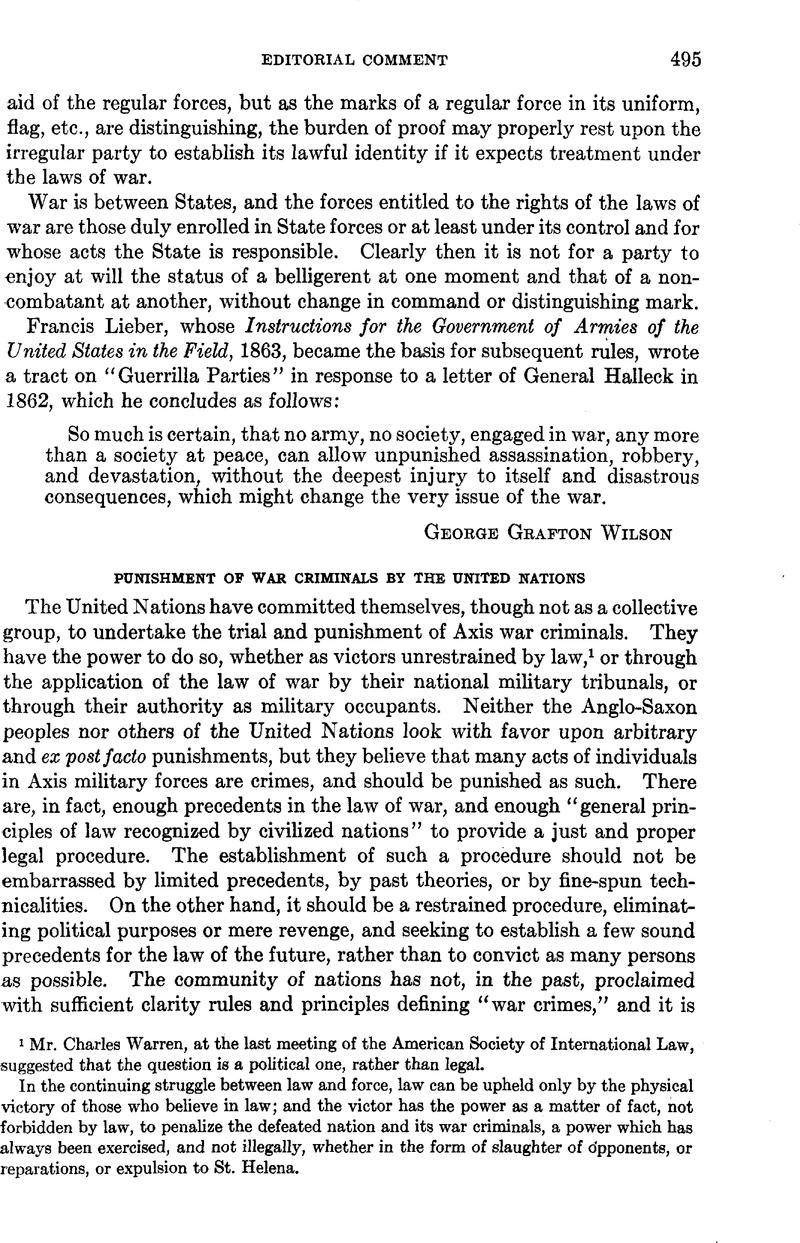Article contents
Punishment of War Criminals by the United Nations
Published online by Cambridge University Press: 12 April 2017
Abstract

- Type
- Editorial Comment
- Information
- Copyright
- Copyright © by the American Society of International Law 1943
References
1 Mr. Charles Warren, at the last meeting of the American Society of International Law, suggested that the question is a political one, rather than legal.
In the continuing struggle between law and force, law can be upheld only by the physical victory of those who believe in law; and the victor has the power as a matter of fact, not forbidden by law, to penalize the defeated nation and its war criminals, a power which has always been exercised, and not illegally, whether in the form of slaughter of opponents, or reparations, or expulsion to St. Helena.
2 I pass by, in this discussion, the argument advanced, with much reason, that war, or war for certain purposes, is illegal, and that consequently all acts committed in such a war are illegal.
3 Signed by Robert Lansing and James Brown Scott. This Journal, Vol. 14 (1920), pp. 150–151.
4 But if it is too much to ask, the suggestion of Mr. Dickinson, made at the last meeting of the American Society of International Law, might be followed, to the effect that cases be handled through national courts or commissions in the first instance, with an international body established ad hoc to serve as a body of review or appeal.
5 See article by Viscount Sankey, entitled “War Criminals,” in Fortnightly, January, 1943, p. 6.
- 3
- Cited by


